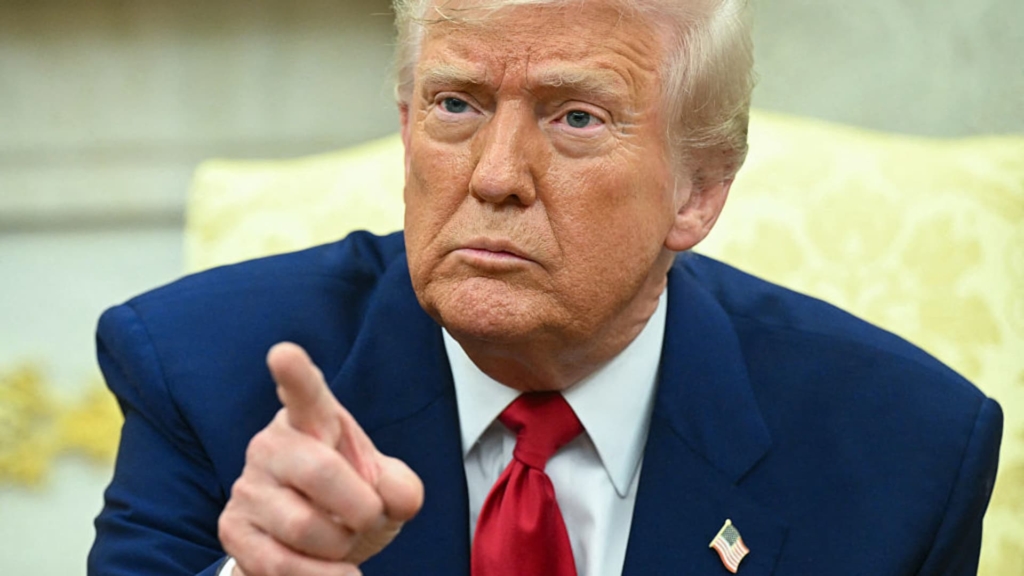China is playing with a ‘losing hand’ in tariff standoff, says Bessent
U.S. Treasury Secretary Scott Bessent asserted that China is holding a “losing hand” amidst the intensifying tariff conflict between the United States and China.
During an appearance on “Squawk Box,” Bessent remarked, “I believe this Chinese escalation was a significant misstep, as they are effectively playing with a pair of twos.”
He further noted that other nations seem more inclined to engage in negotiations compared to China.
“Should they arrive with viable proposals, I believe we can arrive at beneficial agreements,” he added, indicating that some tariffs might remain as part of the negotiations.
Furthermore, Bessent revealed that discussions occurred last night within the administration regarding which countries should be prioritized for upcoming trade talks.
— Jesse Pound
Citadel’s Ken Griffin calls Trump tariffs a ‘huge policy mistake’
Ken Griffin, the founder and CEO of Citadel, has criticized the tariffs imposed by former President Trump, labeling them as a “huge policy mistake” detrimental to middle-class Americans.
At a recent event marking the 100th anniversary of the University of Miami, Griffin expressed his concerns, stating, “I fear that we are relinquishing our role as leaders of the free world.”
“This is the trajectory we appear to be following,” he emphasized.
— Erin Doherty
Euronext CEO describes U.S. as ‘unrecognizable’
Stephane Boujnah, CEO of Euronext, remarked that the recent market downturn is not indicative of panic but rather a realignment of assets.
“Since the crisis began, capital has been flowing out of the United States and being reinvested in Europe,” Boujnah stated in an interview with France Inter radio.
He noted the difficulties investors face amidst the unpredictable policies under the Trump administration, labeling the current state of the U.S. as “unrecognizable.”
“We lament the United States we once knew, which shared similar values and institutions with Europe but now resembles an emerging market,” he added.
Euronext operates exchanges in several European cities, including Paris, Milan, Amsterdam, Brussels, and Dublin.
— Chloe Taylor
Finnish minister advocates for zero U.S.-EU tariffs
Elina Valtonen, Finland’s Foreign Minister, emphasized the necessity for the U.S. and European Union to establish zero tariffs as they navigate the implications of a recent 20% tariff imposed by the White House.
“Initiating a global trade war is the surest route to trigger a worldwide recession,” Valtonen noted during a press conference, as reported by Reuters. “Nonetheless, the European Union must respond to the U.S. measures.”
Clearly, the EU has previously shown a willingness to retaliate against Washington if negotiations falter, yet specific details about potential counteractions remain undefined.
— Ruxandra Iordache
Trump’s agenda for today
Today, President Trump is expected to sign several energy-related Executive Orders and deliver remarks to House Republicans this evening, as indicated by the White House schedule.
3:00 p.m. Trump participates in an “Unleashing American Energy” Executive Order signing event
White House East Room
6:45 p.m. Trump addresses the National Republican Congressional Committee dinner
The National Building Museum
— Christina Wilkie
U.S. markets predicted to open higher after recent declines
U.S. markets are set to open higher this morning following three consecutive days of significant losses.
Futures for the Dow Jones Industrial Average rebounded by 747 points, representing a 2% increase. Meanwhile, futures linked to the S&P 500 rose by 1.5%, and Nasdaq-100 futures climbed approximately 1.3%.
Asian markets also concluded the day positively, helping to mitigate a decline influenced by the negative impacts of Trump’s tariff strategy, which had resulted in the largest losses since the pandemic.
— Sean Conlon
China and EU explore trade diversion strategies
Today, European Commission President Ursula von der Leyen and Chinese Premier Li Qiang engaged in “constructive” discussions about a potential trade diversion mechanism as a response to the substantial tariffs recently introduced by the United States.
According to an EU statement, von der Leyen emphasized the need for Europe and China, two of the world’s largest markets, to take responsibility for supporting a robust, reformed trading system that is free and equitable.
She called for a “negotiated resolution to the current situation” to prevent further escalation.
The officials discussed establishing a mechanism to monitor trade diversion and ensure appropriate responses to developments within the trade context.
As speculation grows regarding whether the U.S. protective measures will push trade partners towards China for improved commercial relations, discussions between the EU and Beijing come after Washington imposed reciprocal tariffs of 34% on China and 20% on the EU. In retaliation, Beijing has introduced its own 34% tariffs on U.S. goods, indicating a potential for further counteractions.
— Ruxandra Iordache
Newly confirmed U.S. Trade Representative to address Senate
Jamieson Greer, the newly confirmed U.S. Trade Representative, is scheduled to testify today before the Senate Finance Committee regarding “The President’s 2025 Trade Policy Agenda.”
This testimony will provide the Senate with an early opportunity to scrutinize a Trump administration official on trade policies following the President’s latest tariff announcements.
The hearing will commence at 10:00 a.m. ET, and Finance Newso.com will offer live coverage of the event.
— Christina Wilkie
Spanish Prime Minister to visit China and Vietnam amid trade shifts
Spanish Prime Minister Pedro Sanchez is set to visit China and Vietnam later this week, as European nations reassess their trade alliances in light of the new 20% tariff rate imposed by the Trump administration.
Sanchez’s itinerary includes a trip to Hanoi on Wednesday, coinciding with the enforcement of the new tariff rates, followed by a visit to Beijing, as confirmed by his office.
This visit highlights the urgency for EU member states, especially Spain, to reevaluate their trade strategies following the shifts in U.S. tariff policies.
— Christina Wilkie


























